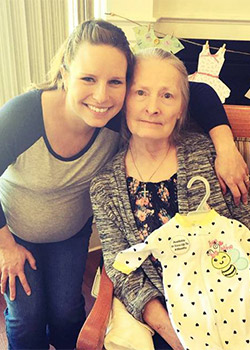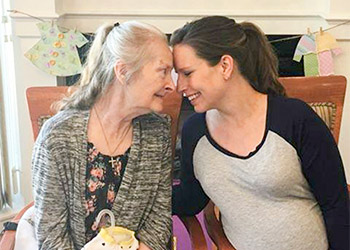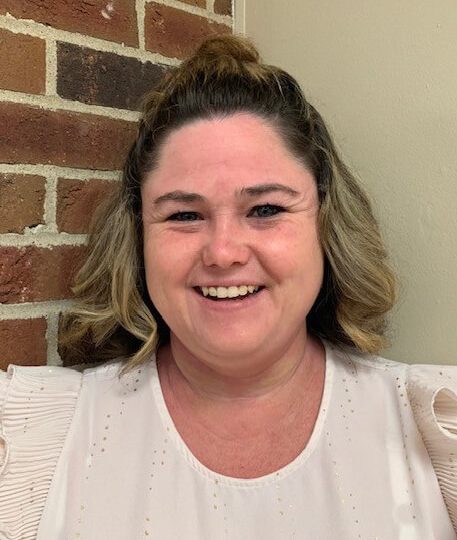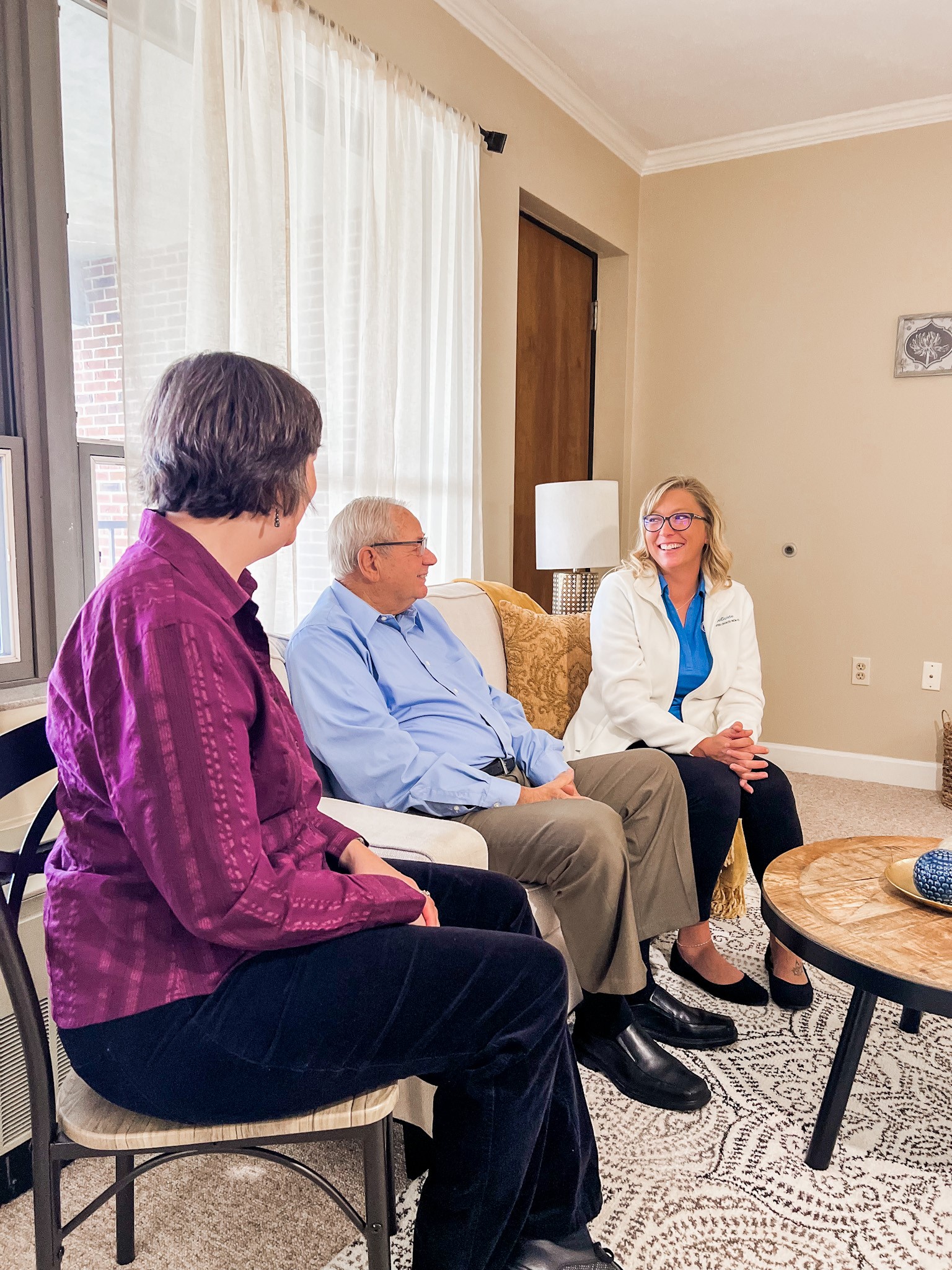
“She loved it,” said her 29-year-old daughter, Tauna Goble. “It’s been a while since she’s been that alert.”
The shower was a surprise for Tauna, who came to Four Winds on May 1 for what she thought was an annual discussion about her mom’s advanced dementia.
“I was in shock, initially. I was emotional. It meant a lot to me because my mom is not able to be a part of my life. The fact that they even thought of that meant a lot,” said Tauna, who gave birth to her second child in June.
Jean was diagnosed with early-onset, frontal lobe dementia nearly four years ago and given just 18 months to two years to live, Tauna said. The signs that Jean had dementia first were noticed by her boss. Jean was forgetting things and not performing the way she used to.
Tauna, of Waverly, Ohio, and her sister, Robin Dofflemyer, 43, knew something was wrong too, but both were shocked when their mother was diagnosed with dementia because she was only 64 and they were so young.
“She had been slipping probably a whole year before she was diagnosed. We hadn’t had her tested. We had no clue. We just knew something wasn’t normal with her,” said Robin, of Piketon, Ohio. “Dementia never crossed our minds.”
People diagnosed with early-onset dementia often are in their 40s and 50s with children, careers and may be caregivers to their parents when symptoms begin. About 5 million people nationwide are living with a form of the disease, but only 5 percent or 200,000 have early-onset dementia. Most become symptomatic before the age of 65, according to the Alzheimer’s Association.
Krysten Garcia, a licensed practical nurse at Four Winds Community, said the diagnosis can be particularly challenging for young families.

Tauna and Robin took care of their mother for two years after her diagnosis, but Tauna struggled to take care of both her mom and a toddler. Jean always was trying to escape and wandering off. Going grocery shopping was difficult, Tauna said.
“Moving her into Four Winds was the hardest decision I have ever had to make. I searched all over the place before I found Four Winds. But even after I put her in there I felt guilty. But quickly I felt I had made the right decision,” Tauna said.
Jean’s quality of life improved after she moved into Four Winds and it may have extended her life, Tauna said.
But the disease has slowly robbed Jean of her mobility and ability to communicate.
“She quit walking six months ago. She’s not really able to talk. She sometimes shakes her head yes or no. I believe she still recognizes us. She still smiles when she sees us,” Tauna said.
Watching their mother’s decline has been an emotional rollercoaster for their family. It was especially difficult for Tauna while she was pregnant and delivering her baby.
“At a time in my life when you usually have your mom to share things with, like having babies, I don’t have that,” Tauna said.
But the pregnancy and baby shower were gifts that brought Jean and her daughter closer together.
Amanda Baxter, a nurse at Four Winds, said nurses wanted to make the event special for Tauna, and sought out help from Robin, Jean and other residents who helped make decorations.
“Our intention was to make this as close to the real thing as possible, meaning a mother throwing a baby shower for her daughter and not a ‘facility-type party.’ We felt that it was important for Tauna and her mother to share the experience of having a baby shower,” Amanda said.
Robin said Jean showed signs of dementia when Tauna was pregnant with her first child. She slept during the labor and delivery, but was present, Robin said. It was tough for Tauna to go through the pregnancy and delivery of her second child without their mother, but having her at the baby shower was big, she said.
Jean was unable to attend a baby shower thrown by Tauna’s in-laws weeks earlier and she misses other family events because of her advanced illness. But Tauna and Robin said seeing their mother smile, laugh and hold onto the baby clothes was special.
“Anytime that we see Mom go back to her personality, even if just for a second, it’s special,” Robin said.
View all articles by:





















